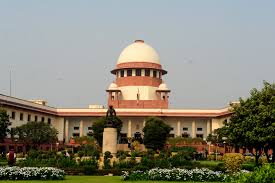
The Supreme Court on Friday said the current criminal defamation law is constitutionally valid and dismissed a batch of petitions that said the law has a “chilling effect” on free speech.
The law has “no chilling effect” on freedom of speech and expression and is needed to protect the dignity of people, the apex court said.
Sections 499 and 500 of the Indian Penal Code make defamation a criminal offence. A person’s right to freedom of speech has to be balanced with the other person’s right to reputation and therefore the two Sections are necessary, the court said.
The petitions against the current law were filed by a motley crew of politicians, including Congress vice-president Rahul Gandhi, Delhi Chief Minister Arvind Kejriwal and Bharatiya Janata Party (BJP) leader Subramanian Swamy.
Swamy and Gandhi have been charged with criminal defamation under Sections 499 and 500 of the IPC for their political speeches made in Tamil Nadu and Maharashtra respectively. Kejriwal is facing cases under the same provisions lodged by the BJP’s Nitin Gadkari and others.
The court asked them to approach the high courts to quash any defamation proceedings against them and gave them eight weeks to approach the high courts.
“Freedom of Right to speech and expression does not confer any right to a person to trample the reputation of others…Defaming a person amounts to offence against society and the government is entitled to lodge a case against a person under criminal defamation law,” the Supreme Court said Friday.
The petitioners had argued that criminal defamation travels beyond the Constitution’s article 19(2) that imposes reasonable restrictions on the freedom of speech and expression.
The BJP-led NDA government is in favour of the law as it is.







Leave a Reply
You must be logged in to post a comment.